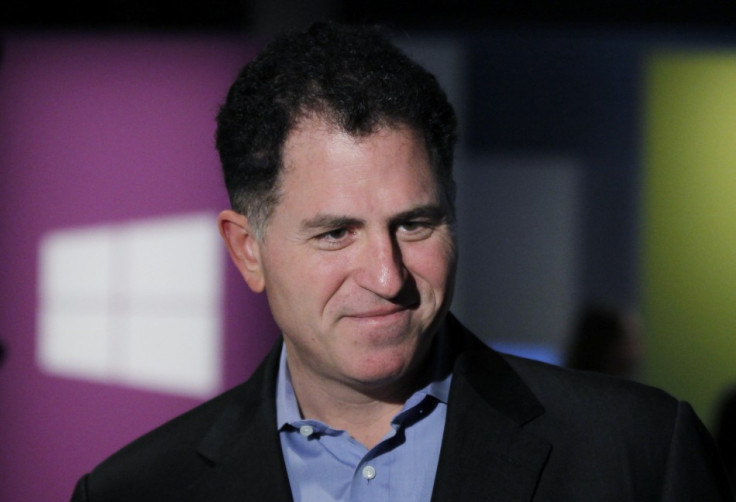Dell Founder Takes Computer Giant Private in £16bn Buyout
Dell computers is to become a private company, having been bought out by founder Michael Dell in a $25bn (£15.8bn) deal voted for by shareholders.

Dell's plans, first announced in February, to buy back the company he founded as a student 29 years ago were challenged by billionaire activist investor Carl Icahn, who mounted a counter-offer he said was better for investors and would keep the company publicly listed.
But shareholders voted in favour of the company founder, chairman and CEO purchasing Dell in partnership with global technology investment firm Silver Lake Partners.
Shareholders will receive $13.75 in cash for each share of Dell common stock they own, plus payment of a special cash dividend of $0.13 per share to shareholders who owned stock before the multibillion dollar merger entered its final stages.
This gives a total buyout price of $13.88 per share - slightly above the company's trading price of $13.86.
The total buyout is valued at approximately $24.9bn.
Dell, 48, said: "I am pleased with this outcome and am energised to continue building Dell into the industry's leading provider of scalable, end-to-end technology solutions. As a private enterprise, with a strong private-equity partner, we'll serve our customers with a single-minded purpose and drive the innovations that will help them achieve their goals."
The Texas-born businessman went on to thank his 110,000 employees. The company would continue expanding its enterprise solutions and services business in a continued shift away from the mainstream consumer market, he added.
Dell is the world's third largest PC manufacturer.
Dell and Silver Lake had upped their offer by 10 cents to sweeten the deal against Icahn's counter-offer of $15 per share for a controlling stake in the company. Icahn was not looking to take the company private and his plans were not backed by a special committee set up by the computer manufacturer to oversee the buyout.
Postponed
Voting on the buyout was postponed three times over the summer as the company's CEO and board of directors worked to convince voters to side with them and not Icahn.
Michael Dell wanted to take the company private because he believed that significant restructuring to improve the company's outlook would be best performed away from the scrutiny of the stock market.
Last month, the company reported a 72% slide in quarterly earnings, reflecting price cuts intended to appease customers nervous about the company's future and spearhead a change of direction from the consumer to enterprise market, where it will compete with IBM and HP.
Dell said the deal would "open an exciting new chapter" for the company, customers and employees.
Dell intends to shift the company's business model more towards enterprise services as the PC market continues to shrink in the wake of surging smartphone and tablet sales.
The transition from public to private company is expected to be completed before the end of the third quarter of Dell's 2014 financial year subject to regulators' agreement.
© Copyright IBTimes 2024. All rights reserved.






